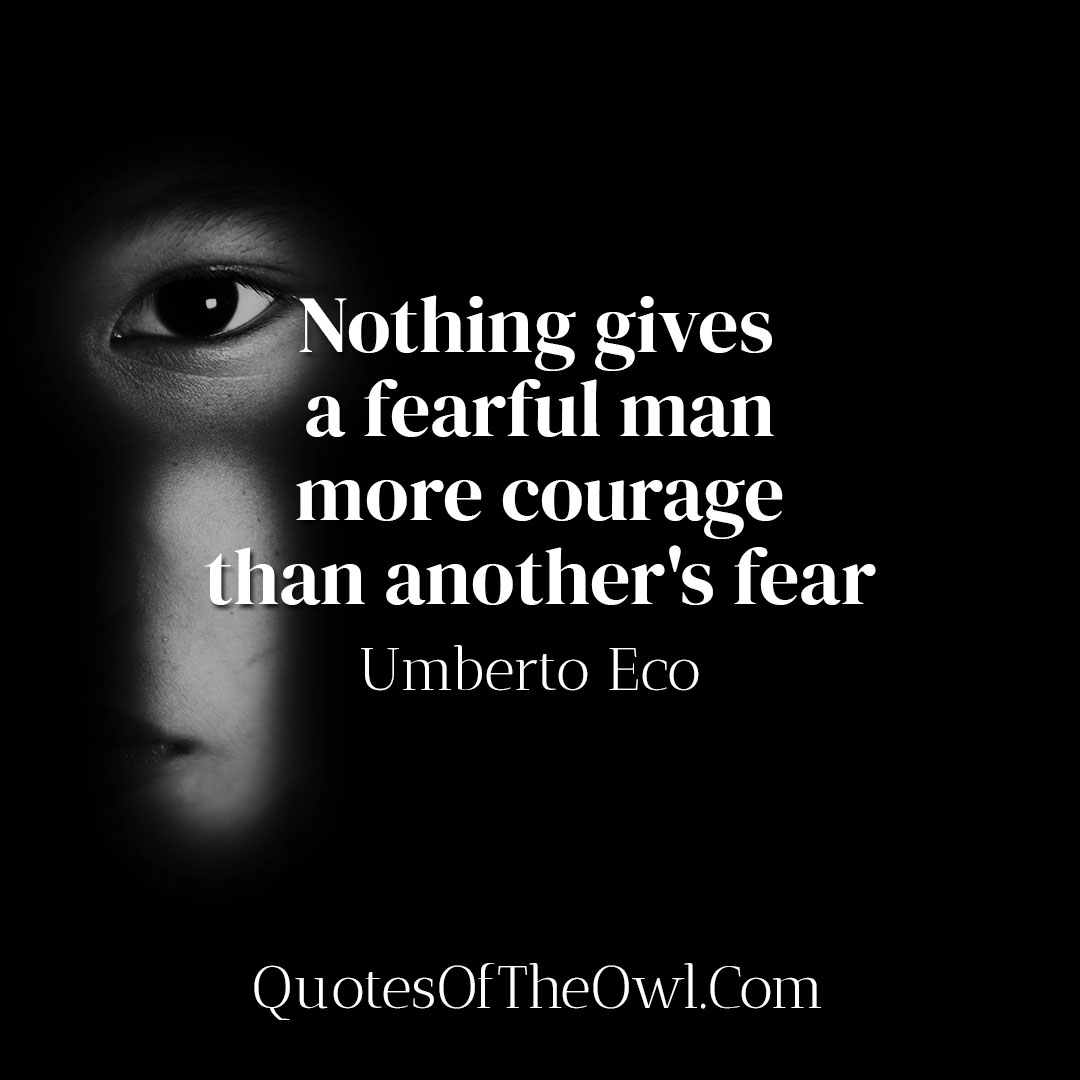What is the meaning behind Umberto Eco’s Quote: “Nothing gives a fearful man more courage than another’s fear”?
Umberto Eco, a renowned Italian novelist, philosopher, and semiotician, once said, “Nothing gives a fearful man more courage than another’s fear.” This intriguing quote encapsulates a profound insight into the complex interplay between fear, courage, and human psychology. In this article, we will delve deep into the layers of meaning behind this thought-provoking statement, exploring its implications for understanding human behavior, motivation, and the dynamics of fear.
Unpacking the Quote
Fear as a Catalyst for Courage
At first glance, Eco’s quote appears paradoxical – how can fear, typically seen as a paralyzing emotion, actually instill courage in someone? Delving deeper, we realize that witnessing another person’s fear can often serve as a powerful catalyst for overcoming one’s own apprehensions. It’s a phenomenon rooted in empathy and solidarity – when we see someone facing their fears head-on, it can inspire us to confront our own anxieties with newfound resolve.
The Role of Empathy
Empathy plays a pivotal role in this process. When we empathize with someone else’s fear, we tap into a shared human experience. This shared experience can diminish the isolation of our own fears, making them seem less daunting. Moreover, witnessing others triumph over their fears can create a sense of camaraderie, reinforcing the belief that if they can do it, so can we.
Fear as a Common Ground
Eco’s quote also highlights the concept of fear as a universal human emotion. Regardless of our backgrounds, cultures, or experiences, fear is something we all grapple with at various points in our lives. This shared vulnerability fosters a sense of interconnectedness, as we realize that our fears unite us in our humanity. When we confront our fears inspired by another person’s example, we engage in an act of collective bravery, transcending our individual limitations.
The Ripple Effect of Courage
Furthermore, the quote suggests that the act of conquering fear has a ripple effect. When one person finds the courage to face their fears, it can inspire others in their circle to follow suit. This propagation of courage can create a positive feedback loop, where each courageous act emboldens the next person, ultimately leading to a collective transformation of fear into empowerment.
Overcoming Fear of the Unknown
Eco’s quote also speaks to the idea that fear often stems from the unknown. When we witness someone confront a fear and emerge stronger on the other side, it demystifies the source of that fear. It sends a message that the unknown can be navigated, and even conquered, with determination and resilience.
The Power of Shared Stories
Human history is replete with tales of individuals who have faced their fears and emerged as heroes. These stories, whether fictional or real, serve as a wellspring of inspiration. When we hear about someone overcoming incredible odds, we instinctively draw parallels to our own challenges, imagining ourselves in their shoes. This identification with the protagonist’s journey gives us a glimpse of the courage that lies within us, waiting to be awakened.
Conclusion
Umberto Eco’s quote, “Nothing gives a fearful man more courage than another’s fear,” encapsulates the intricate relationship between fear and courage. It reminds us that courage can be contagious, spreading from one person to another through the empathetic connection of shared experiences. By witnessing the triumphs of others over their fears, we gain insights into our own capacity for bravery. This quote serves as a poignant reminder that, in the face of fear, we have the potential to transform vulnerability into strength, uncertainty into resolve, and apprehension into empowerment.
Explore the profound wisdom of Umberto Eco through his captivating and thought-provoking quotes.
Immerse yourself in the captivating realm of Umberto Eco’s literary works

